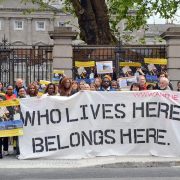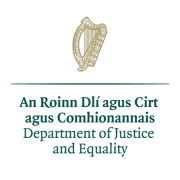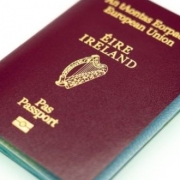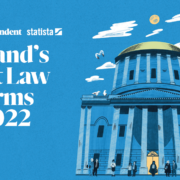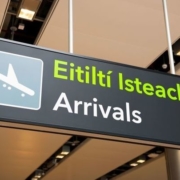HIGH COURT JUDGEMENT OVERTURNING VISA REFUSAL TO HUSBAND AND FATHER OF IRISH CITIZENS
Berkeley Solicitors would like to congratulate our clients who were successful in their Judicial Review proceedings today.
The Applicant family have been successful in their challenge to the Minster for Justice’s refusal of a join family visa application for the father and spouse of Irish citizens.
The visa application was submitted on the basis of the family and private life rights arising from both his marriage to an Irish citizen and those arising from his relationship with his Irish citizen children.
The visa application was initially submitted in 2017 and on appeal was refused by the Minister in 2019. The visa appeal was refused for a number of reasons with a focus on financial grounds.
The Minister concluded it was likely that the Applicant would become a burden on the Irish State if a visa was granted to him to join his family. This finding was made despite comprehensive evidence of the Applicant’s long career history and high level of qualifications, along a strong commitment from him of his desire to work in the State. Furthermore, financial support from his brother in law, a doctor in the State was also put forward. The Minister concluded that the family could maintain their family life via visits and Skype calls and that there was no disproportionate interference with the Constitutional rights of the Applicant family in the refusal of the join family visa to the Applicant.
On behalf of our clients’ Berkeley Solicitors challenged this decision by way of High Court Judicial Review proceedings.
The proceedings ultimately focused primarily on the rights arising from marriage, as the Applicant’s children had reached the age of 18 and over by the time these proceedings where heard.
In a Judgement delivered by Ms Justice Burns today, the Applicants were successful and the High Court ordered the cancellation of the visa appeal refusal.
We understand this judgement to be the first judgement to comprehensively address the findings of the very important Supreme Court judgement in Gorry. Ms Justice Burns helpfully reviews the Applicants’ position as a married couple in line with the guidance provided by the Supreme Court in Gorry.
Ms Justice Burns found that the Minister had failed to give due respect to the institution of marriage in the refusal of the Applicant’s visa to join his wife and children.
Ms Jusice Burns held in her judgement:
The ultimate test for this Court is whether the Respondent failed to recognise the relationship between the Applicants, or to respect the institution of marriage because of its treatment of the couple concerned.
In the course of her deliberations, the Respondent had regard to the fact that the Second Applicant was a citizen of Ireland; that she had a right to reside in Ireland; that she had a right to marry and develop a family life; and that cohabitation was a natural incident of marriage and the family. However, the Respondent appears to have failed to have had regard to the fact that not permitting the First Applicant to enter this jurisdiction had a significance for the couple and the development of their family life.
It is the case that the Respondent was considering an application which related to the Applicants’ children’s rights, which was interconnected with marital rights and perhaps for this reason focus was lost on the marital rights of the Second Applicant. However, the Court is of the view that the Respondent failed to recognise the marital relationship between the Applicants and to pay due respect to the institution of marriage.
While important State interests were identified by the Respondent, an intensive consideration of the underlying facts and evidence was not conducted by the Respondent.
In the particular circumstances of this case, the Respondent failed to identify a properly justified countervailing interest that outweighed the importance of the Applicants’ status as a married couple, one of whom is an Irish citizen, and ultimately failed to give due respect to the institution of marriage and the Applicants’ marital rights under the Constitution.
This is fantastic news for our clients who have waited such long time to have this matter resolved and we wish to congratulate them on this positive news today. Our office also wishes to thank and congratulate Applicant’s counsel for their tireless work and commitment to the case.



